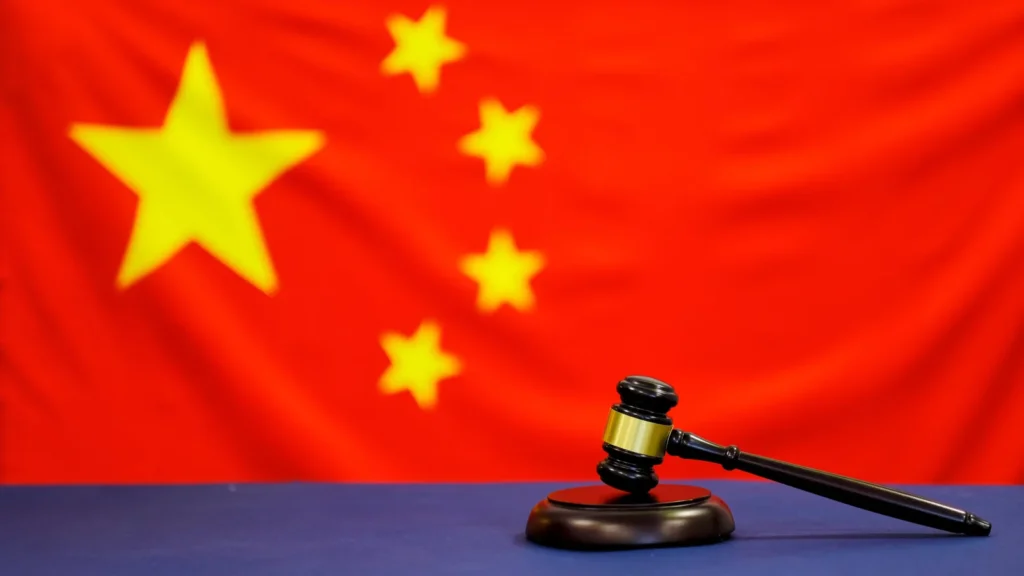In international business, securing the enforceability of contractual agreements is crucial. When these contracts involve Chinese entities, the challenge often lies in navigating the unique legal landscape of China. Given that China has its own set of jurisdictions and laws, like any other country, there are specific considerations that foreign businesses must address to enforce their agreements effectively. This includes opting for exclusive jurisdiction within China, applying Chinese law, and ensuring that contracts are drafted in a legally verified Chinese language version.
Table of Contents
ToggleThe Chinese Legal Framework
China operates under a legal framework that does not typically recognize or enforce foreign judgments directly. This particularity is a fundamental aspect of China’s judicial independence and its approach to international legal matters. As a result, any attempt to enforce a contract through foreign courts can be ineffective if it involves a Chinese counterparty.
Benefits of Choosing Exclusive Jurisdiction in China
Choosing exclusive jurisdiction in China offers strategic advantages for contract enforcement. By agreeing to settle disputes within the Chinese judicial system, businesses align themselves with the local legal processes. This decision can lead to more predictable outcomes and a higher likelihood of successful enforcement. It also eliminates the complexities and uncertainties that can arise when enforcing a foreign judgment in China.
The Role of Chinese Law and Language in Contracts
Ensuring that contracts are governed by Chinese law and drafted in Chinese not only facilitates a smoother legal review process but also enhances the enforceability of the contract terms. Contracts written in Chinese and governed by local law are more readily accepted and interpreted within the Chinese legal system. This approach minimizes language barriers and cultural misunderstandings, which can significantly impact the outcome of legal disputes.
Bilingual Contracts: The Importance of Chinese as the Authoritative Text
In the realm of international business dealings with Chinese entities, utilizing bilingual contracts can facilitate understanding and accessibility for all parties involved. However, to avoid potential pitfalls during legal disputes, it is crucial to designate the Chinese version of the contract as the authoritative text.
Risks of Poor Translation in Legal Proceedings
In China, any contract written in a foreign language is translated into Chinese by court-appointed translators when disputes are adjudicated. The accuracy of these translations can significantly impact the interpretation of contractual terms. Errors or inconsistencies in translation can lead to misunderstandings of the contract’s intent, potentially altering the legal outcome in favor of one party over another.
Designating Chinese as the Authoritative Text
To mitigate risks associated with translation discrepancies, businesses should designate the Chinese text of the contract as the authoritative version. This approach ensures that the contract terms are interpreted as intended by the drafting parties, thus maintaining the agreement’s integrity as both parties understand.
Benefits of a Bilingual Contract with the Chinese Language as the Authoritative Text
Clarity and Accuracy
Having a bilingual contract with Chinese as the authoritative text provides clarity and ensures that the contract terms are accurately reflected in the language most familiar to the Chinese judicial system.
Efficiency
This practice reduces the reliance on potentially inaccurate court translations, which can streamline the legal process and avoid unnecessary delays in court proceedings.
Enhanced Enforceability
By using the Chinese language version as the authoritative text, businesses enhance the enforceability of their contracts in China. The contract is more likely to be upheld as intended during legal disputes, providing better protection for the parties involved.
While bilingual contracts benefit understanding across borders, designating Chinese as the authoritative text is essential for protecting contractual interests within China’s legal framework. This strategic choice helps to safeguard against the risks of translation errors and ensures that agreements are enforced as originally intended.
In conclusion, for international businesses engaging with Chinese entities, tailoring contractual agreements to fit the unique legal landscape of China is crucial. By stipulating exclusive jurisdiction in China, applying Chinese law, and drafting contracts in the Chinese language, businesses can secure a more effective enforcement mechanism. This strategy not only aligns with the judicial preferences in China but also offers a practical path to upholding contractual obligations.
FAQs: Enforcing Contracts with Chinese Entities
1. Why is it important to choose exclusive jurisdiction in China for contracts involving Chinese companies?
Choosing exclusive jurisdiction in China ensures that disputes are settled within the Chinese legal system, aligning with local legal processes and increasing the likelihood of enforceable outcomes.
2. How does Chinese law impact the enforceability of contracts?
Contracts governed by Chinese law are more likely to be enforced smoothly and as intended, as they are interpreted according to local legal standards and practices.
3. Why should contracts with Chinese companies be drafted in Chinese?
Drafting contracts in Chinese minimize language barriers and misunderstandings, ensuring that the legal terms are clear and enforceable within the Chinese legal system.
4. What are the risks of enforcing a foreign judgment in China?
Foreign judgments are typically not recognized directly by Chinese courts due to China’s judicial independence, making enforcement of such judgments difficult and often ineffective.
5. Why designate the Chinese version of a contract as the authoritative text in bilingual contracts?
Designating the Chinese version as authoritative ensures that the contract terms are interpreted as intended by the parties, especially in legal disputes, thereby maintaining the agreement’s integrity.
6. What are the benefits of having a bilingual contract with Chinese as the authoritative text?
A bilingual contract with Chinese as the authoritative text provides clarity and accuracy in the legal terms, reducing reliance on court translations and facilitating a smoother legal review process.
7. How does using Chinese as the authoritative text enhance the enforceability of contracts?
This practice ensures that the contract is interpreted correctly and upheld as intended during legal proceedings, thereby protecting the interests of the parties involved.
8. What happens if there are translation errors in legal proceedings in China?
Translation errors can lead to misinterpretations of contractual terms, potentially affecting the outcome of legal disputes unfavorably and altering the intended meaning of the contract.
9. How can businesses mitigate risks associated with translation discrepancies in China?
By drafting contracts in Chinese and designating the Chinese version as the authoritative text, businesses can avoid translation issues and ensure their contractual terms are understood and enforced as intended.
10. What overall strategy should international businesses adopt when engaging with Chinese entities?
International businesses should tailor their contractual agreements to fit China’s unique legal landscape by stipulating exclusive jurisdiction in China, applying Chinese law, and drafting contracts in the Chinese language to ensure effective enforcement and protection of contractual obligations.








